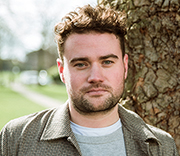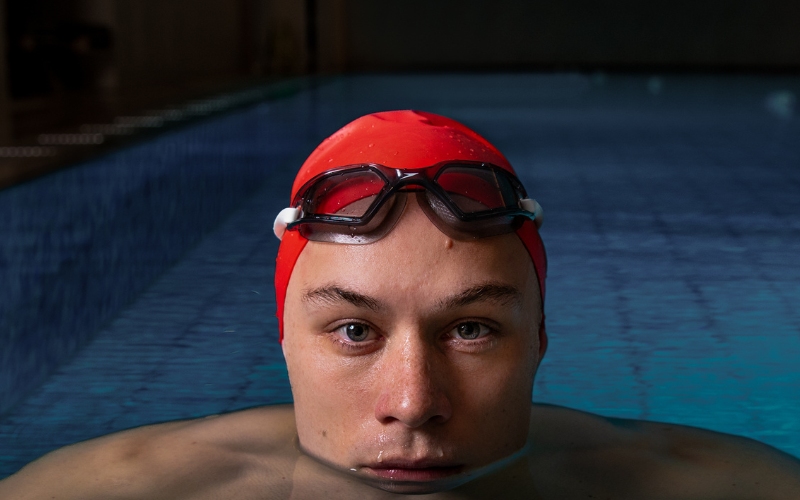Joe White is an alumnus of the Orange Tree Writers Collective, part of the lifeblood of the OT, working to nurture exceptional talent. He was a member of the prestigious Old Vic 12, a group of the country's most highly regarded young writers, directors and producers. He was also selected to be the Channel 4 Playwright on Attachment at Pentabus Theatre Company.
Here he talks about his debut play Mayfly.
How has the OT Writers Collective been important to you?
Applying for the Collective is the best career decision I’ve ever made. Mayfly was my submission piece, and it had been knocking about for a few months without much interest. I liked it, but had maybe given up the hope of it being produced anywhere for a while. But then Guy read it, and liked it, and gave it to Paul, who programmed it, and, out of the blue, gave me everything I’d always wanted. So there’s that. The Collective was also a great place to come together with like-minded writers and talk about work – both ours, and work we’d seen or read – and facilitated a safe space to chat about writing and being a writer. It’s maybe the loneliest job in theatre, so having a place to chat, and a community to call your own was amazing. Stresses were shared, and problems solved by people who knew what they’re talking about (not me); ideas were developed and discussed with care and, work stuff aside, the writers on that group were just brilliant people to hang out with and learn from. I couldn’t recommend it highly enough. Also, as a side note, I got rejected for the Collective the first time round, a few years ago, but reckon we’re about even now.
What was the inspiration for the play?
A few years ago, I moved to deepest, darkest Shropshire for a nine month writing residency with a rural touring theatre called Pentabus. I'd never lived in the countryside before, nor spent any real period of time on my own, but I decided to jump in at the deep end and take a room in a small 14th century farmhouse, in the middle of nowhere, owned by an eccentric septuagenarian who wrote erotic poetry and taxidermied animals she'd run over. Very quickly, I realised that any idyllic notion I'd held of the English countryside would be lost in that deep green nowhere, with that mad, brilliant woman. There were no agas, or long walks, or roaring fires, or colourful locals at the pub (the pubs had all been closed) but I did start to properly see seasons for the first time in my life, and sleep in real country dark, and sit with my own thoughts, and notice other people living near me in that peripheral place: families in nearby farms; bored teenagers, desperate for escape; and hosts of natives who'd been pushed out of nearby market towns by second-home-owning retirees. These were people I'd never really thought about before – the last bastions of farming communities and crumbling villages, where work is sparse and futures are uncertain. And as soon as I noticed them, I couldn’t stop thinking about them, and what would happen to them over the next few years. I guess that was the seed of Mayfly, as well as some other stuff which would definitely be counted as spoilers.
Do you feel the play is responding to certain factors of life in contemporary Britain?
I think the play is always striving for hope, but it’s also responsive to a Britain which feels increasingly hopeless – by which I mean, one of isolationism, and self-destructive nostalgia. After two months of badly taxidermied animals, and erotic poetry readings, I’d moved to Ludlow (the nearest town), where I witnessed both the most decadent displays of wealth and the most acute poverty I’d ever seen in one shared space – more evident than any of the cities and suburbs I’d lived in. Spreading out from the middle-class wonderland that is the market square in Ludlow’s centre, I’d walk through boarded-up housing estates, and, further still, through fallow fields, past closed-down farms, and factories, and a multitude of derelict pubs. And, all the time I wondered – where the hell is everyone? Pubs feature heavily in the play, because they’re such hubs of local community, beacons for life, so when you see them shutting down at such drastic rates all over (30 a week across the UK), you can’t help but think – what’s next? Who used to go there? Where are they now? How are there stories living on? It’s like, as soon as the pubs go, these places start to erode – become extinct, and I’m genuinely very scared for some of those communities. The play is about 4 people who are totally at sea from each other, who need to learn how to exist together again, and look after each other – look at each other – and I can’t help but think about Britain when I think about them. The sense of loss, and alienation, and isolationism, and the communal need to just fucking see each other. To just look. And be better.
Where do you usually write?
I like libraries or cafes – places with people, preferably working too, who make me feel bad for going on Twitter (@Mojoewhite – gimme a follow). And sometimes home, which is good for reading lines aloud (not cool in libraries, especially shouty bits) but bad for procrastination (again, that’s @Mojoewhite).
Do you do a lot of planning, or do you just start writing?
The last thing I do is actually write. I ponder a lot, and walk about, and try to meet people, and do some professional procrastination which looks like research, and think a bit more and occasionally jot stuff down. But I try not to write a single line of dialogue until I know the characters pretty well. Of course, I don’t really know them then either, I only think I do, and it takes the next few months, or year, to actually get to know them properly. The best bit of writing is when you know for sure you're wrong – when you hear a character say a line you know they'd never say, at an almost instinctual, guttural level. That's when you're linked into them properly, and you and your ego has been removed (a bit). But that takes time. I love to percolate for as long as possible, and I usually need about four or five ‘moments’ (by which I mean images, or perhaps turning points I can sort of picture) before I genuinely think something’s got legs. Then I go mad on the first draft and take an aeon writing the others.
How do you find redrafting and how important is it for you?
I love it and simultaneously want it to die forever. I write drafts and drafts and drafts – all with the word 'final' in them, like I can trick myself into thinking I'm nearly done. I'm never done. I’m obsessed with structure and form, and you never learn so much about yourself and the craft as in rewriting, but it’s also mostly awful. I remember reading a tweet by Lucy Prebble once which said something like: ‘Rewriting can be like reinserting a spine into an animal which is already dead’. Or something like that. I know I’m obsessed with bad taxidermy at the moment, but that always struck me as true. Giving such rigid (and probably imperative) shape to something can also kill it from the inside – it’s a very careful and volatile thing to do, and very few of us are trained surgeons. The most important thing in rewriting, I think, is other people. Letting people you trust read the work (even when you want to burn it and scatter the ashes at sea), and talk about it, and – most importantly – help put it in the air, is sort of everything. You never know what the hell you have until a person other than you says it out loud.
What’s it like being in rehearsals and seeing the play come to life?
Incredible. The cast are incredible. Guy [the director] is incredible. Cécile [the designer] is incredible. The music, lighting – the whole team are incredible. I’m totally in love with all of them. I think it's going to be a magic thing.
Mayfly is running from 19 April – 26 May 20118



